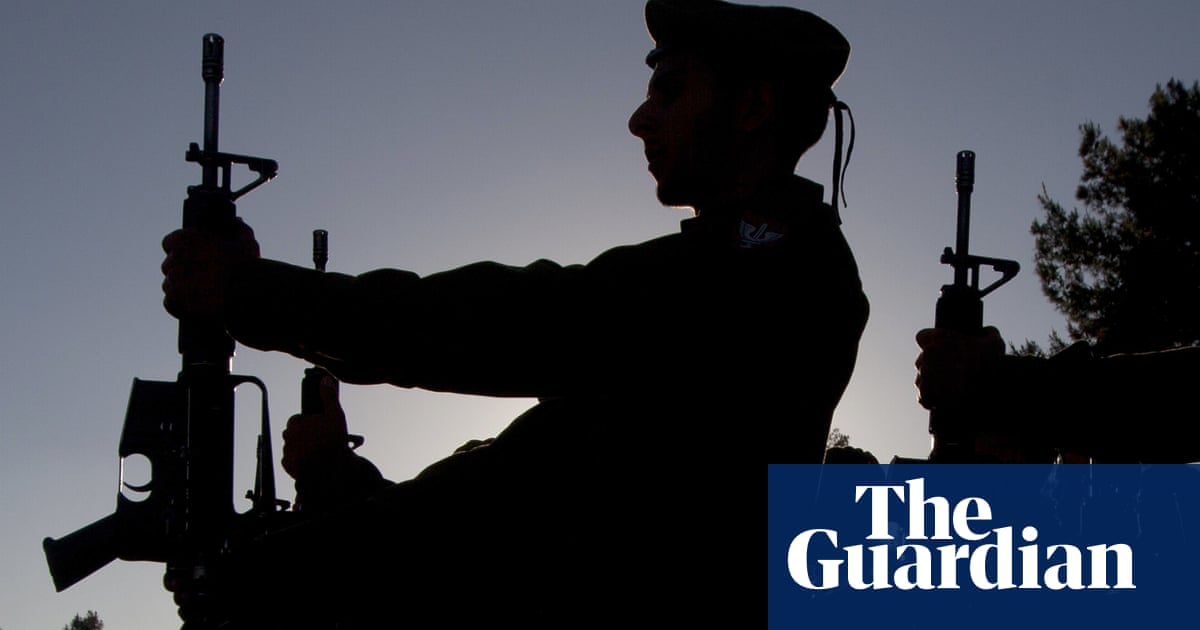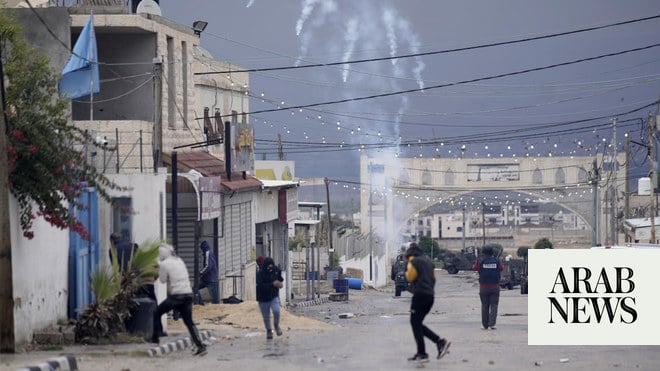
Tony Blair’s government accused Israeli forces of acting more like the “Russian army than that of a civilised country” during a major military incursion into the occupied West Bank, newly released official files show.
The tensions, which have eerie parallels to western concerns over current Israeli operations in the Gaza Strip, are laid bare in papers released by the National Archives.
The documents show the exasperation of western allies at the mounting Palestinian death toll as the Israel Defense Forces laid siege to the headquarters of the Palestinian leader, Yasser Arafat, in 2002.
Ariel Sharon, Israel’s prime minister at the time, launched Operation Defensive Shield at the end of March 2002, calling up 20,000 reservists, after a wave of suicide attacks killed scores of Israelis.
IDF tanks surrounded Arafat’s compound in Ramallah, cutting off phone lines and power supplies, while intense street to street fighting raged for eight days in the sprawling Jenin refugee camp.
At a tense meeting with Sharon’s foreign policy adviser, Danny Ayalon, the British ambassador, Sherard Cowper-Coles, warned the offensive was a “major strategic mistake” that was undermining support for Israel among its allies.
“If some of the reports we were receiving were credible, the IDF’s behaviour was more worthy of the Russian army than that of a supposedly civilised country,” Cowper-Coles told the adviser, according to his report of the meeting.
“I was not suggesting that such behaviour was a matter of policy. But there was no doubt that individual soldiers were out of control and committing acts which were outraging international opinion.”
As an example, he cited the case of Israeli troops broadcasting a pornographic video on Palestinian television, knowing it would be deeply offensive to devout Muslims. “Ayalon had no real answer to any of this, pleading only ignorance and Arab lies,” Cowper-Coles wrote.
George Bush, who was engaged in his own “war on terror” after the 11 September attacks the previous year, was equally frustrated by the Israeli actions, letting off steam in a private call with Blair.
“While Arafat had effectively been marginalising himself, Sharon had succeeded in making a martyr of him – building him up to the point where he was becoming the new Bin Laden,” the president complained, according to a No 10 note of the call.
“The Israelis were trying to fight a 21st century war with 20th century techniques. Sending tanks into alleyways was simply a PR disaster. The US had tried to persuade Sharon privately, but he just would not listen. The bottom line was that Sharon was undermining the US’s ability to pursue the war on terrorism. That was not the action of a good ally.”
A British officer who had observed IDF operations in the occupied territories before Operation Defensive Shield said that, despite its reputation as a “competent and effective” force, the reality was very different. “A second-rate, ill-disciplined, swaggering and bullying force,” was his scathing verdict.
“They routinely use excessive force such as firing at the ‘legs’ of stone throwers or at ‘car tyres’ with the inevitable steady stream of ambulances ferrying youths to hospital with fatal bullet wounds to the head and body.”
Elsewhere in the tranches of papers released by the National Archives, it was revealed that Downing Street officials wanted to acquire a permanent prime ministerial battlebus to support Blair on his visits around the country.
Campaign battlebuses, hired by the political parties on a temporary basis, had long been a feature of general elections but the files show that in February 2000, No 10 officials suggested it could become a permanent arrangement.












